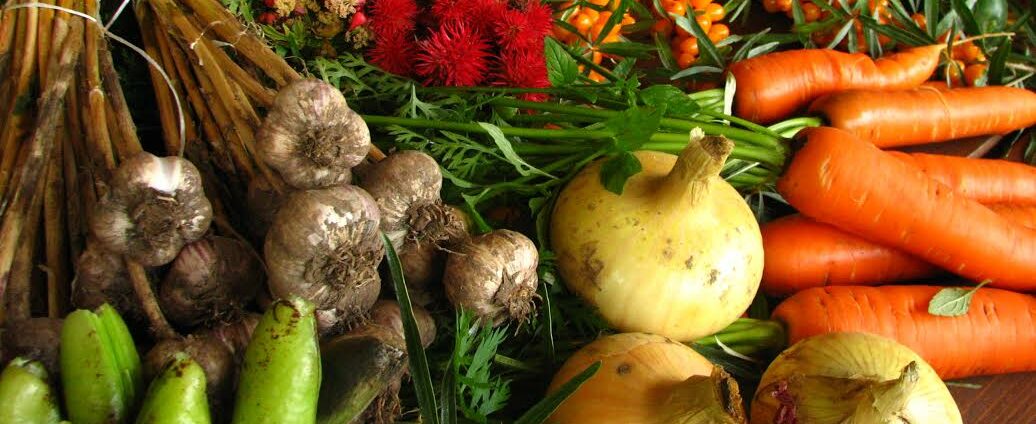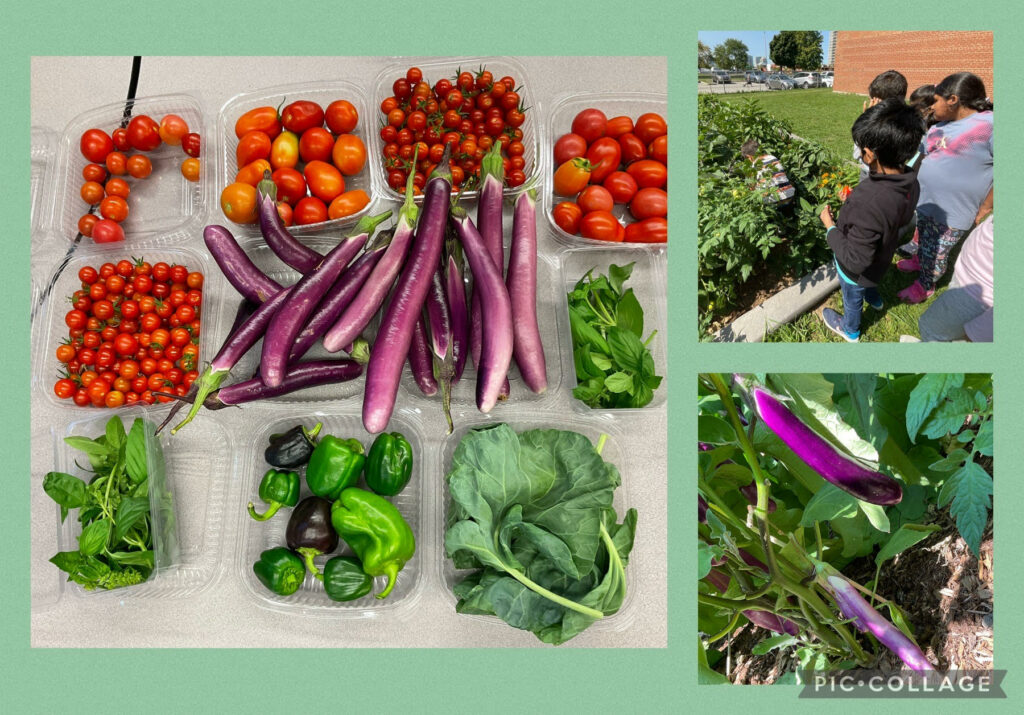
By Elaine Smith
Woburn, an immigrant-rich Toronto neighbourhood located in southeast Scarborough, now has its own community garden and seed library thanks to the helping hands of York University students in the Cross-Campus Capstone Classroom (C4).
C4 provides students with an opportunity to work effectively in interdisciplinary teams on real-world challenges with social impact. It runs as a two-semester course during the academic year or as a six-week summer course. Professors Danielle Robinson (School of the Arts, Media, Performance and Design) and Franz Newland (Lassonde School of Engineering) founded the program in 2019.
In summer 2022, the focus of C4’s evening class was food sustainability and security, and two groups of York students – Team Maintainers and Team Knitters – were among those that worked with the Woburn neighbourhood.
“York students built relationships with the local schools, libraries and activists, and then created pathways between institutions and organizations so the community members can work together to feed themselves in ways that are co-operative and cost-effective,” said Robinson.

Leah Yuyitung, former chair of the parents’ council at Woburn Collegiate Institute (WCI) and spokesperson for the grassroots-led community group Woburn Local Planning Table, was the students’ main contact.
“A lot of the student ideas were about building apps or creating brochures, but I told them that community engagement projects need to be hands-on,” said Yuyitung. “They need to build relationships and be on the ground.”
For the garden group, Yuyitung helped locate a plot of land at Woburn Collegiate Institute and drew on connections with the local schools to collaborate with the C4 students.
“As part of the preparation for the York students’ building the garden, I found teachers who were interested in establishing a garden and growing seedlings from seeds, and Danielle purchased the grow lights and soil,” said Yuyitung. “The student landscaping and STEP eco-club of WCI, 10 classes at Woburn Junior School, and two at St. Thomas More, grew plants indoors for the shared community garden.”
The Team Maintainers students created the garden space, tilling it by hand in conjunction with WCI students adding the necessary compost.
“We had about 30 people working on the garden, and it was a great event,” said Yuyitung. “The students brought pizza and samosas and made it a celebration.”
Talha Rashidi, a recent York kinesiology graduate, managed Team Maintainers.
“I am deeply invested in food security,” said Rashidi, who is committed to social justice and is on the board of the not-for-profit organization, Road to Zero Waste. “This project was right in my wheelhouse. The C4 space can be whatever you make it, and it was a starting point to impact the world. It’s really empowering.”
Rashidi said that he and his team had a steep learning curve, since they weren’t gardeners themselves, but “Yuyitung and her community resources helped us determine the size of the plot, the type of topsoil and compost we needed and the ideal space needed between plants.
“We also gained more sensitivity to the needs of the community – things such as safety protocols and dietary constraints within a diverse community – which were our blind spots before.”
Shyamaly Vasuthevan, a York alumna now working toward a second degree (BSc in psychology) at York, managed Team Knitters, the seed library team.
“There were a lot of ideas about what we could do, and we met with community partners to see what was appropriate,” she said. “We decided to create a seed library, along with a website that would tie all the Woburn C4 projects together. The website became our portfolio – we all learned to use WordPress.”
A seed library may sound mysterious, but Vasuthevan explained that it is actually a set of cabinets that contains a wide variety of seed packets that people can take to grow their own food. In return, the students request that once the plants produce fruit, vegetables, or spices, the growers save the seeds to return to the library so others can benefit.
One of the students on the team belonged to Many Green Hands at York, a student environmental organization, and had connections to seeds; in addition, the team had some C4 funding and scoured wholesale sites to obtain what they needed. They bought seeds in bulk, but, as Vasuthevan said, “No one needs 5,000 spinach seeds,” so the group found themselves becoming experts in working on an assembly line, measuring seeds into envelopes, taping, packaging and labelling.
Using a label printer, the students put a QR code onto each label that leads to their website and information about how to grow seeds. They also have seed cards on file for each type of plant that offers basic information about the food item and how to grow it.
The library is housed in portable cabinets so that it can be taken to community events to give the seeds a wide distribution. It was housed in the Cedarbrae Public Library as a pilot project, and the team is currently working toward finding a permanent home for it. In fact, they are so dedicated to the project that they have remained involved for an additional six months in order to ensure a smooth transition, apply for more funding, and promote the seed library in the community.
“We would prefer to have someone in the Woburn community take it over,” said Vasuthevan. “We also want people to bring in their own seeds. We tried to find seeds that were relevant to the foods eaten in the local community. For instance, okra is popular with the Tamil community in the area.”
She called working on the seed library “an amazing experience.” Personally, she discovered that she was a good public speaker and organizer and “really learned how to be sensitive and efficient.”
“We learned a lot about the community, and it made the summer go faster – we could just see the program growing in front of us.”
